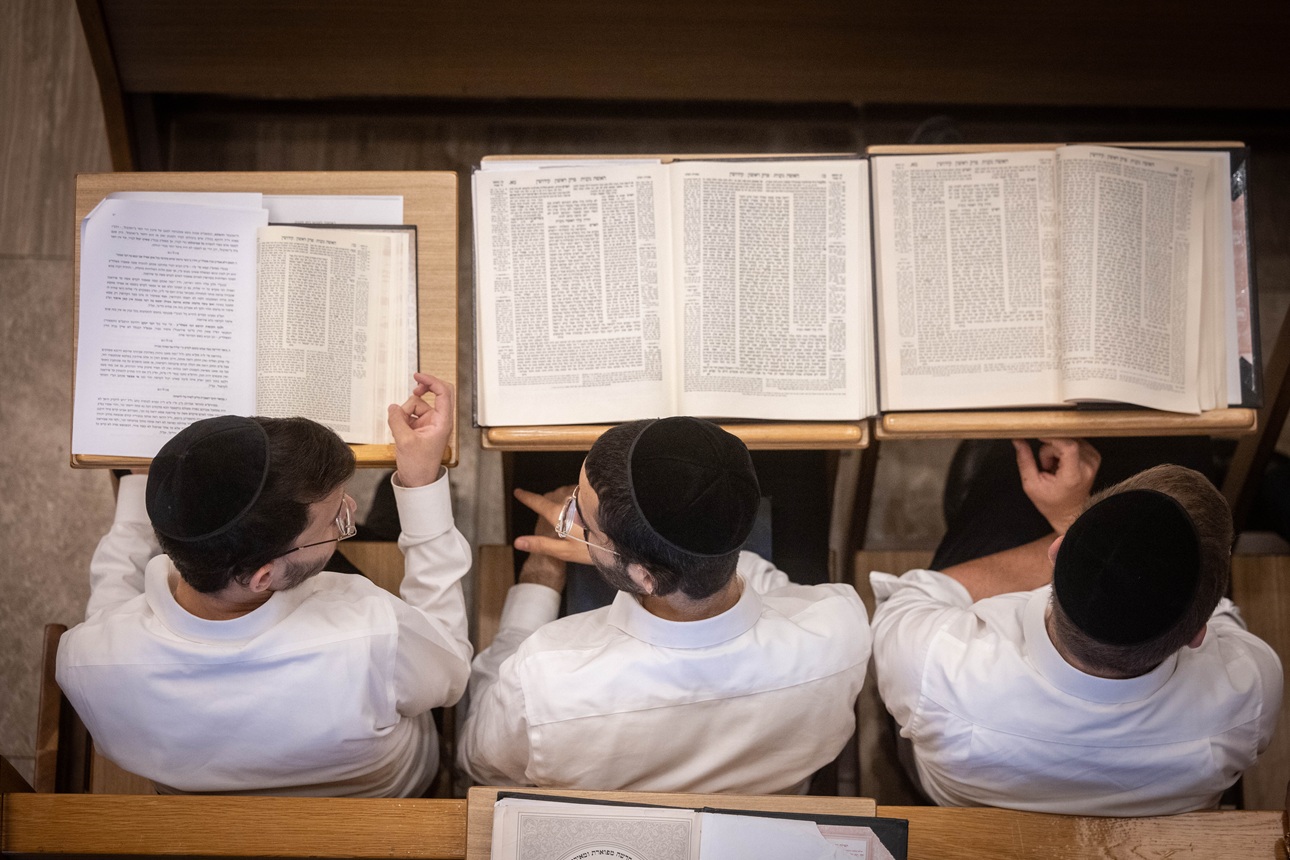Not Studying, Not Serving—And Now, Not Funded
The Attorney General recently gave instructions to halt government funding for yeshivot for young Haredim who have dropped out. These instructions promote the value of equality and may also help advance the status of the young men who have dropped out.

Photo by Chaim Goldberg/Flash90
Last week, the Attorney General gave instructions to halt government funding for yeshivot for young Haredim who have dropped out (those who leave institutions dedicated to full-time Torah study), which are funded by the Ministry of Social Affairs. This is in accordance with the Supreme Court ruling requiring the cessation of funding to yeshivot and kollels for students who are obligated to enlist in the IDF. Though this step stems from the expiration of the exemption from military service previously provided by law, it reflects an escalation and a fundamental change in the rules of the game, against the backdrop of the anger and pain of the secular and national religious publics over the absence of Haredim from mandatory military service. This time, legal measures are being focused directly at those who are not studying and to whom mandatory enlistment applies at the relevant age (17–23).
In fact, the very existence of these educational frameworks openly violates the Haredi position which the community’s leaders are trying to justify, but which is unacceptable to the majority of the public that do serve in the IDF. According to this position, yeshiva students make a highly valuable contribution to the defense of Israel by studying Torah, and should therefore be exempt from military service. If this is the case, then there would seem to be no justification for the exemption given to Haredi youth who drop out of mainstream educational institutions, since in most of these frameworks they attend, Torah study is completely secondary to other activities, such as casual and unreported employment, extracurricular activities, and even prestigious leisure activities in Israel and abroad, as previously revealed in media investigations.
Despite the Attorney General’s decision, it appears that the current government—which was established based on coalition agreements requiring increased budgets for yeshivot, including yeshivot for young Haredi dropouts—is doing everything possible to prevent young Haredim who have distanced themselves from the Haredi mainstream from embracing the values of Israeli solidarity on which the model of mandatory service is based. Meanwhile, Haredi rabbis are fiercely opposing any compromise or attempt to force conscription on their followers, due to fears of secularization and of losing control and oversight over their electorate. The fear of conscription is so great that last summer, there were even calls against the enlistment of Haredi “idlers” who do not study, in the words of Chief Rabbi Yitzhak Yosef.
This statement by Rabbi Yosef reflects a well-known truth that only exacerbates the moral injustice and unfairness inherent in the current arrangement, which many in Israel are unwilling to accept: Studies in recent years have shown that thousands of young Haredi men do not study Torah, and instead are on the margins of the “society of learners.” Approximately one-fifth of those defined as students at post-secondary Haredi yeshivot—some 8,320 young men—attend special “soft” yeshivot that are generously funded by the state, but do not involve full-time Torah study.
Though they are defined as dropouts from the Torah world, the heads of their yeshivot still seek to prevent them from being exposed to the secular world and to keep them under the protection of the community, thereby stopping them from being drafted into the IDF. This is how most of these young men, who are not interested in studying Torah or able to do so, find themselves at a dead end: They do not abide by the Haredi social norm of being Torah students, yet nor do they study secular subjects or gain an occupation that will support them in adult life.
Therefore, it is possible that the Attorney General’s instruction to halt the special funding for these “soft” yeshivot will not only promote the value of equality, but will also help advance the dropouts themselves: If these “idlers” serve in the IDF, they will contribute more to the army, to the state, to the economy, and to themselves than they would as “dropout” students lacking any promising future in terms of employment or social and civic status. Alternatively, the state could make funding for Haredi frameworks for dropouts conditional on their preparing students for military service and independent living. In this way, these graduates could become the pioneers in the necessary process of leaving behind narrow sectoral thinking and integrating Haredim into the IDF and Israeli society.
There is no justification for maintaining the situation as it is today. The fractures in Israeli society must be healed; this requires making a forthright political and public decision, which will have to be accepted and enforced as required. The Haredi rabbis may be surprised to learn that this will also benefit the Torah world.
This article was published in the Times of Israel.
